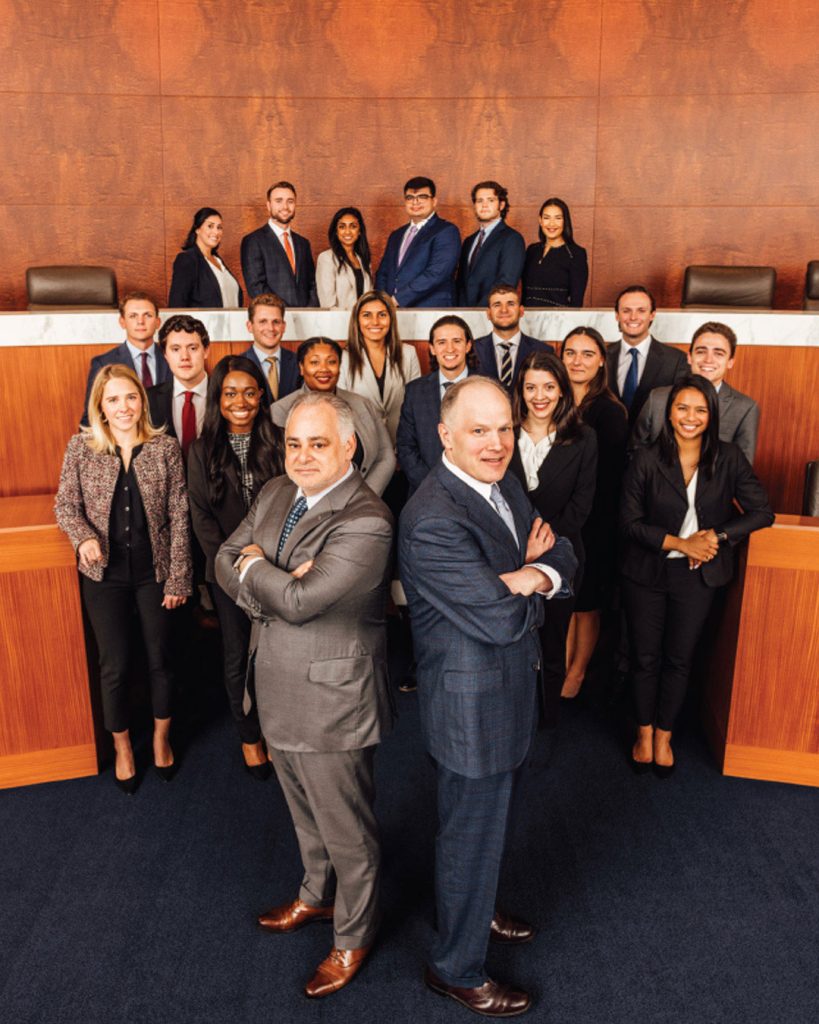Honors Certificate in Texas Advocacy
Concentration in Texas Advocacy
Eligibility
Students must be in academic good standing to enter the concentration program.
Students must apply for entry into the concentration program after completing the first 30 credit hours of required courses and before completing 45 credit hours or during their third semester of full-time study.1
Students with a GPA of less than 2.7 must obtain approval from the Directors or their designee before entering the concentration program.
Requirements
The concentration program will have two tracks: Civil Advocacy and Criminal Advocacy. Each has the following requirements:2
- Complete core doctrinal courses that provide substantive legal knowledge;
- Complete at least 6 credit hours of experiential courses that offer students the chance to develop the skills necessary for a career as a litigator; and
- Complete additional approved courses (doctrinal or experiential) that provide for specialized training in the student’s chosen career path.

1 During the 2023-24 academic year, students who can satisfy the requirements for completing the Texas Advocacy Concentration are eligible to interview for entry into the program.
2 The STCL course sequencing requirements for upper-level required courses are waived for students enrolled in the Texas Advocacy Concentration. See Student Handbook at 3 (listing sequencing of courses for the first 43 credit hours).
Honors Certificate in Texas Advocacy
Requirements
- Complete the requirements for the Concentration in Texas Advocacy;
- Complete the law school’s Substantial Writing Requirement3 in an area related to the chosen track (civil or criminal) as determined by the Directors or their designee;
- Participate in at least one external advocacy competition;
- Serve as an advocacy scholar;4 and
- Graduate with an overall average G.P.A. of 3.3 or higher.
3 Students may complete the Substantial Writing requirement by: 1) writing a student note in an approved advocacy topic for the South Texas Law Review or another journal; 2) taking one of the STCL seminars on advocacy and producing a paper; 3) writing paper on an approved advocacy topic for Supervised Research; or 4) taking the Advanced Appellate Practice class and writing a brief on an advocacy topic. Students may not use a course that satisfies the Substantial Writing Requirement for any other purpose (i.e. – the 6-hour experiential requirement).
4 Advocacy Scholars will be 3Ls mentoring those starting the program. They will serve as teaching assistants for introductory classes, student coaches for advocacy teams, or in other roles that advance the program.

